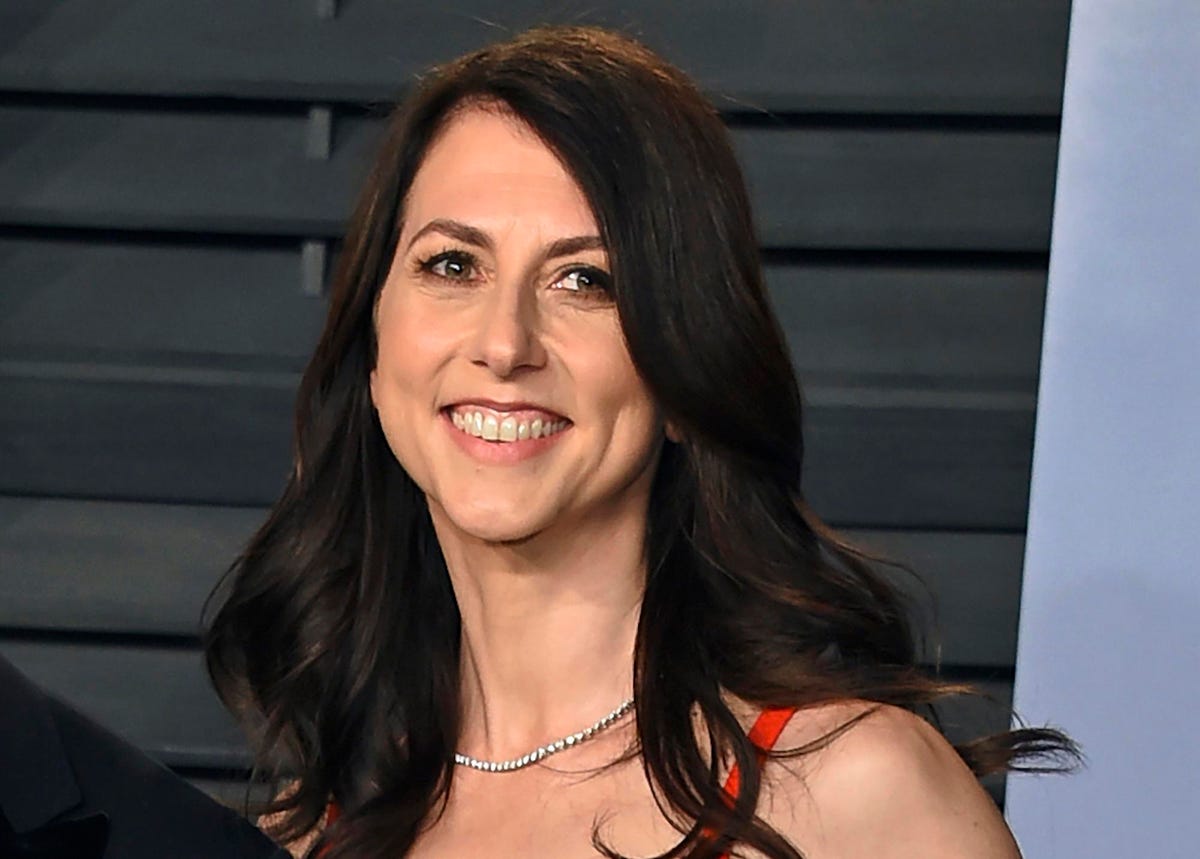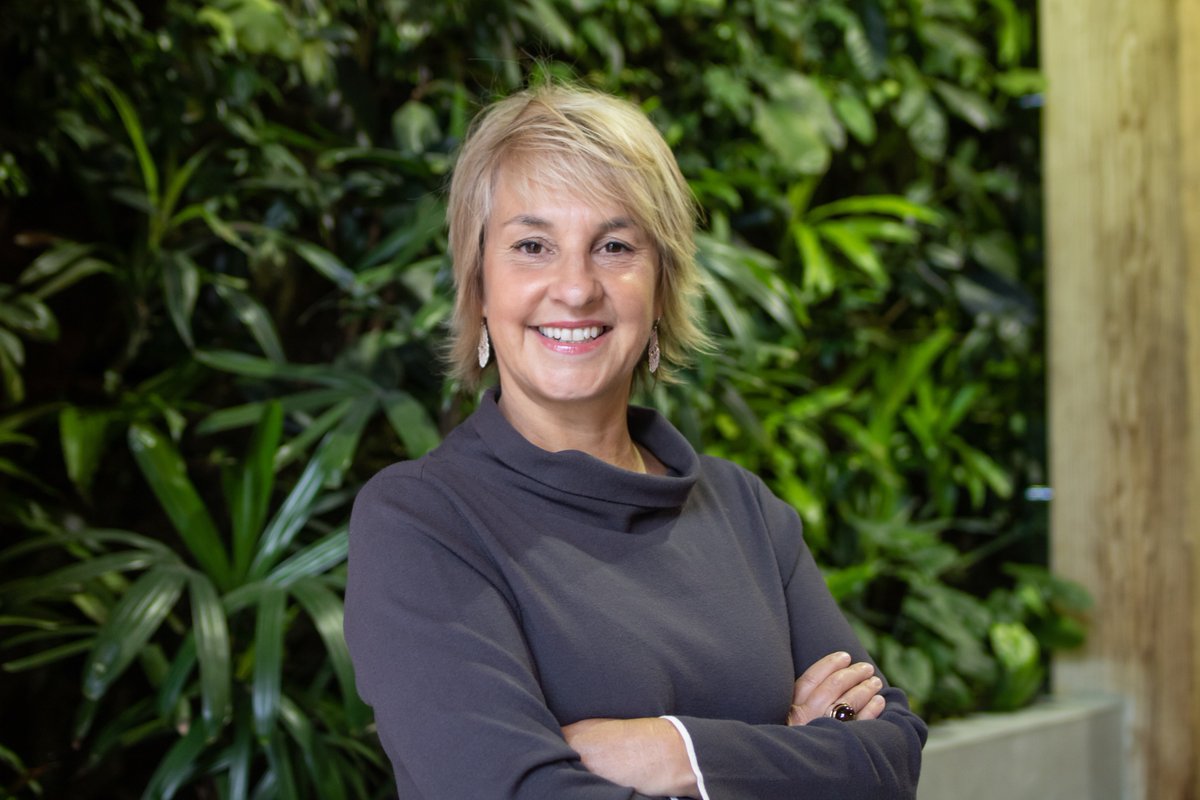Inside MacKenzie Scott's recent $18.9 million donation to MakeWay – the largest in its history
Why It Matters
MacKenzie Scott, one of the most high-profile trust-based philanthropists in the world, is setting an example to Canadian donors and grantmakers on how to distribute billions of dollars in wealth to changemakers — no strings attached.

When several consultants contacted MakeWay CEO Joanna Kerr in 2021 on behalf of an anonymous donor, it seemed at first to be just another case of a wealthy individual wanting to make a discrete donation to the national grantmaker. Except these consultants started asking way more questions than donors typically do.
They wanted to know how MakeWay’s theory of change works, how it handles partnerships, runs grantmaking, and evaluates its programs. At the time, MakeWay was working on its 2022-2025 strategic plan – the consultants received an early draft. “It’s not unusual to be working with anonymous donors,” Kerr explains in an interview with Future of Good. “The unusual part was coming back, over and over again, with so many different questions.”
Eventually, in February 2022, Kerr was told to wait and see if MakeWay would receive a donation. By then, she had a guess as to who the anonymous donor might be – MacKenzie Scott, a billionaire U.S. philanthropist, and the ex-wife of Amazon founder Jeff Bezos. Ever since the couple divorced in 2019, Scott has given away approximately $12.4 billion U.S. to charities around the world.
On March 3, 2022, Kerr received a phone call from one of Scott’s advisors. She was right. Scott’s donation to MakeWay – $15 million U.S., or around $18.9 million Canadian – is the largest in the grantmaker’s history. Perhaps most importantly for MakeWay, an advocate of trust-based philanthropy, it comes with absolutely no strings attached. “We can spend it in whatever way we want,” Kerr says.

Boosting Makeway’s strategic plan
By happenstance, MakeWay had approved its most recent budget and strategic plan on the same day Scott’s $18.9 million donation was made public. Kerr says the money will have to be accounted for in a budget addendum – MakeWay’s board of directors will receive it in June. In the meantime, MakeWay will need to figure out what they’re going to do with the donation.
While Kerr stressed that MakeWay hasn’t had time to discuss where the money will go or how it will be distributed, she did confirm Scott’s donation will be used to boost MakeWay’s newly minted strategic plan. (To put the $18.9 million donation’s scale into perspective, Scott’s donation is about a third of MakeWay’s annual program spending.) “It helps us start things faster than we would have otherwise been able to do,” Kerr says. “It’s really about us having a moment to take the strategy now and [say,] of all the things we want to achieve in that three-year plan, what is it that we need to prioritize first in order to get there faster?”
MakeWay’s new strategic plan includes seven major priorities focused around Indigenous authority and cultural resurgence, climate action, economic well being, and an equitable charitable sector. They range from funding for community partners calling for a national freshwater conservation strategy to growing new philanthropic models like the Right Relations Collaborative, an Indigenous women-led group that flips the power dynamic between grantmaker and grant recipient. All of them are important – but Kerr really wants to consider how MakeWay can create a “knock-on, positive impact.”
“Let’s seek out ways to amplify the impact of the gift through an investment, or matching gifts, and other pathways,” Kerr says. “What is it that we can apply parts of this gift to that would have leverage?”
One of the few certainties Kerr offered was launching a small grants fund for the 72 community projects on MakeWay’s shared platform, where projects share administrative resources like a dedicated operations support team, senior management, and day-to-day problem solving assistance. She described it as a capacity-building initiative that would strengthen organizations. “Do you need to hire a comms person? Do you need a fundraiser? Do you need a strategist? What is it that would help you get to the next level so that you could have an impact?” Kerr says. “That’s one way where this grant can go to leverage change faster.”
‘Money is political’
Over the coming weeks, MakeWay’s senior management team will consult with their employees – as well as partners on the MakeWay platform – to figure out how to allocate Scott’s $18.9 million donation. Kerr says it’ll be akin to a budgeting process. “We’re very participatory here at MakeWay,” she says. Whatever the grantmaker decides, it’ll need to grapple with several ethical considerations around how the money is used.
The Right Relations Collaborative explores, through its work, the idea of shifting the power between funder and grantee – giving communities the chance to question funders about their motives, the source of their funds, and their wealth’s potential for harm. Kerr says shifting the traditional philanthropic power dynamic – and pursuing the idea of ‘right relations’ – is definitely going to be part of the planning process for Scott’s donation.
Another consideration is in how Scott’s wealth derived from Amazon, a company with a record of both ecological harm and labour exploitation, can help MakeWay partners who seek social, economic, and ecological justice. “Any of us working in philanthropy are also operating amongst so many contradictions,” Kerr says, “where wealth accumulation has often been as a result of dispossessing Indigenous peoples from their land, from extraction from the planet in unsustainable ways.”
Nonetheless, Kerr believes Scott’s donation to MakeWay can build the power of community leaders who can sustain nature and communities thriving together. “Money is political,” she says. “Money can also be liberated from its suffering. Hopefully, we can use these gifts to truly advance what we see as a very, very ambitious strategy to shift systems.”
Giving intermediaries a raise
To this day, Kerr isn’t sure exactly why Scott donated $18.9 million to MakeWay. “I can only speculate, which is never a good thing,” she says when asked. But she has a couple of theories. One is that Scott seems very interested in supporting intermediary organizations like the Climate Justice Resilience Fund, Communities in Schools National, or the Fundo Brasil de Direitos Humanos (Brazil Human Rights Fund). “She sees the real value of these intermediaries and these social infrastructure organizations that she knows are able to leverage funding and then get it to the ground and build movements,” Kerr says.
Kerr believes Scott is also very interested in women-led organizations, especially by women of colour. Having an ambitious strategic plan that pushes for deeper relationships with community partners working on Indigenous cultural resurgence, conservation, and climate justice also likely helped. “I think that’s appealing to someone who wants to get money out the door to make significant change and to change the very systems that create inequality,” she says. “Our strategy is to try and shift power and to transform colonial, patriarchal, and economic systems that are destroying people and planet.”
By giving millions of dollars to MakeWay, Scott will be supporting a national foundation that provides grants to remote Indigenous and Northern communities, as well as urban neighbourhoods where accessing charitable dollars isn’t easy. Grantmakers have often ignored Indigenous or Black-led organizations, while Canada’s laws around charitable giving greatly favour established nonprofits or organizations with charitable status. For many grantees, Kerr says, MakeWay is the first interaction with a philanthropic grantmaker they’ve ever had.
MakeWay is one of the first Canadian charitable organizations to receive a donation from Scott, but Kerr believes they shouldn’t be the only one. “I think there are many organizations in Canada that could also fit the bill in terms of reaching communities that are particularly Black, particularly racialized, particularly Indigenous communities that are not receiving funds,” she says.
Urging no-strings-attached Canadian philanthropy
During the first few months of the COVID-19 pandemic, Canadian grantmakers experimented openly with the idea of no-strings-attached trust-based philanthropy. Instead of providing strict reporting conditions, grantmakers would give money to trusted non-profits or charities expecting it would be put to good use. Some Canadian grantmakers have kept the practice of trust-based philanthropy in place, while a few – including MakeWay – have practiced it for long before the pandemic began.
MacKenzie Scott’s donation arguably represents one of the highest-profile cases of trust-based philanthropy, and Kerr hopes it inspires a new wave of no-strings-attached giving from Canadian grantmakers. “We need the whole sector to be moving this way if we are going to build the movements and address the very systems that have created the problems that we’re all trying to fix,” Kerr says. “This is the direction that we want to move.”
